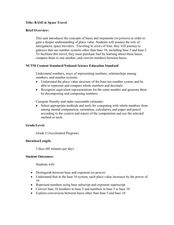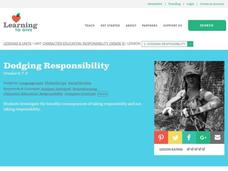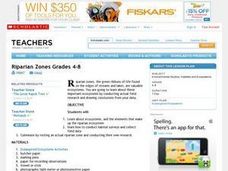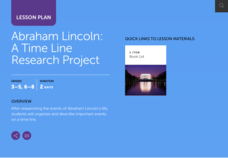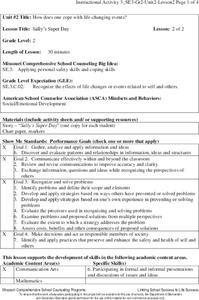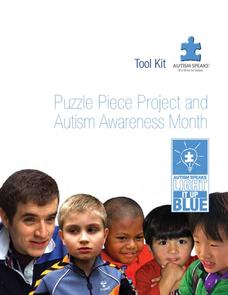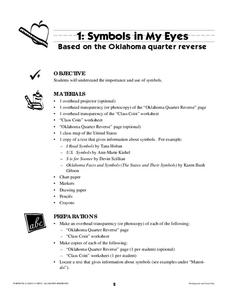Curated OER
Using Missing Factors in Equations
In this math worksheet, learners learn how to use a multiplication chart to help find missing factors. Students are directed to use the "chart on page 5" (not included here) to solve 45 problems.
Curated OER
BASE-ic Space Travel
In this 3-day place-value lesson, upper-elementary kids investigate the base 5 and base 2 systems as an introduction to exponents and powers. They create a pocket chart to help ground their understanding of bases, exponents, and powers,...
Curated OER
Assuming Responsibility
Sixth graders examine the meaning of responsibility for sixth graders. For this responsibility lesson, 6th graders use a list of brainstormed ideas to create a definition of responsibility. They look at their own responsibility to...
Curated OER
Portrait of a First Grader
First graders generate ideas of the things that a 1st Grade student thinks, does and feels based on a model on bulletin board paper. They (counselors) pick one students and trace that student's body onto a pieces of bulleting board paper...
Curated OER
Sensational Slime
Students mix solutions of polyvinyl alcohol and borax. They predict what happen and record their observations. They prepare a T-chart comparing Jell-o to their mixture.
Curated OER
Defining Respect
Learners examine what respect is and isn't. In this character education lesson, students create a t-chart of what respect looks like and doesn't look like. The teacher adds the words bias, prejudice, stereotype and racism to the chart....
Curated OER
Earning an Income
Fourth graders study the role of money in society and define how to earn an income. For this human capital lesson, 4th graders read the book Shoeshine Girl and discuss it. Students discuss various economic concepts and complete the...
Curated OER
Talking Heads
Middle schoolers create an imaginary conversation. In this perseverance lesson, students complete a t-chart about words that describe perseverance and words that describe the opposite of perseverance. Middle schoolers sketch a "talking...
Curated OER
Dodging Responsibility
Students examine what makes people be responsible. In this responsibility activity, students chart the good and bad things that happen if you take responsibility and if you don't.
Curated OER
Keeping Track of Our Money
Second graders complete activities to learn how to manage money. In this managing money lesson plan, 2nd graders read the book How the Second Grade Got $8,205.50 to Visit the Statue of Liberty and complete two related worksheets.
Curated OER
Tallying Animals
Second graders draw a picture of a pond scene which includes various animals. They exchange pictures and tally the number of animals drawn. Then they record the number on a chart and write a story about their pictures.
Curated OER
Riparian Zones Grades 4-8
Students examine and analyze the Riparian Zones found on the edges of streams and lakes. They assess why those are such valuable ecosystems and then conduct actual field research on riparian zones and conclude by drawing conclusions from...
Inside Mathematics
Coffee
There are many ways to correlate coffee to life, but in this case a worksheet looks at the price of two different sizes of coffee. It requires interpreting a graph with two unknown variables, in this case the price, and solving for those...
US Mint
Coin Connections
Help young mathematicians make cents out of the US currency system with this two-part math lesson. Children first learn the names and values for each type of coin, before learning to count and compare the values of coins using the...
International Boys' Schools Coalition
Empathy
Putting yourself in someone else's shoes is a common phrase we hear from time to time, but do children really understand? Explore empathy with elementary schoolers using these activities. Focusing on feelings and emotions, students role...
Scholastic
Abraham Lincoln: A Time Line Research Project
Though Abraham Lincoln's life was tragically cut short, it was filled with accomplishments and inspiring moments that continue to influence American democracy. Explore the ways the 16th president of the United States made his way from a...
Science Matters
Basic Needs
Scholars take part in a grand conversation about the basic needs of living things. Working collaboratively, pupils brainstorm and identify similarities to come to the conclusion that the environment meets the needs of all living things.
Missouri Department of Elementary
Sally’s Super Day
After having a bad day, Sally took scholars' suggestions and had a super day. Pupils listen to her newest short story then discuss the events that occurred. They sort each event by what was in her control and what was not. Participants...
ReadWriteThink
Webcams in the Classroom: Animal Inquiry and Observation
Boost observational skills with an inquiry-based lesson that takes scholars on a virtual field trip. With help from webcams, learners observe animals in a zoo or aquarium. Observations go into a journal and a discussion is held to review...
Autism Speaks
Puzzle Piece Project and Autism Awareness Month
Looking for ways to include your class members in Autism Awareness Month? Use a packet that provides several opportunities to include the student body in an important campaign.
US Mint
Symbols in My Eyes
Explore the hidden meanings behind the images on US currency with this elementary school lesson on symbolism. Starting with a class discussion about symbols, children go on to brainstorm different objects that represent the Unites States...
Wild BC
Is Climate Change Good for Us?
Is it really that big of a deal if the global climate undergoes a little change? Young environmentalists consider this very question as they discuss in small groups the impact of different climate change scenarios on their lives, their...
PBS
The Little Red Hen: A Tale of Cooperation
Ensure that your kids don't even consider saying "Not me!" when it comes time to read by engaging them in this set of lesson plans based around "The Little Red Hen." The class reads the story together before starting in on additional...
NOAA
Sediments
Calcareous ooze ... what an interesting name! The 15th installment of a 23-part NOAA Enrichment in Marine sciences and Oceanography (NEMO) program focuses on sediments found on the ocean floor. After viewing the slideshow lecture,...



